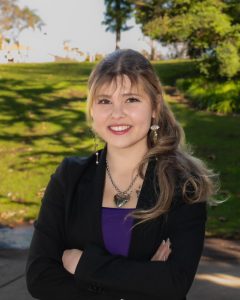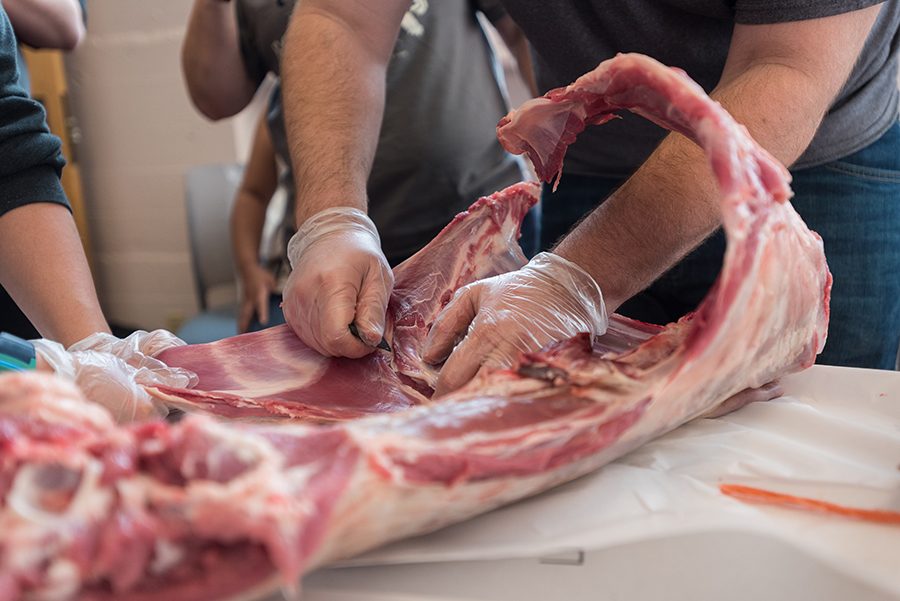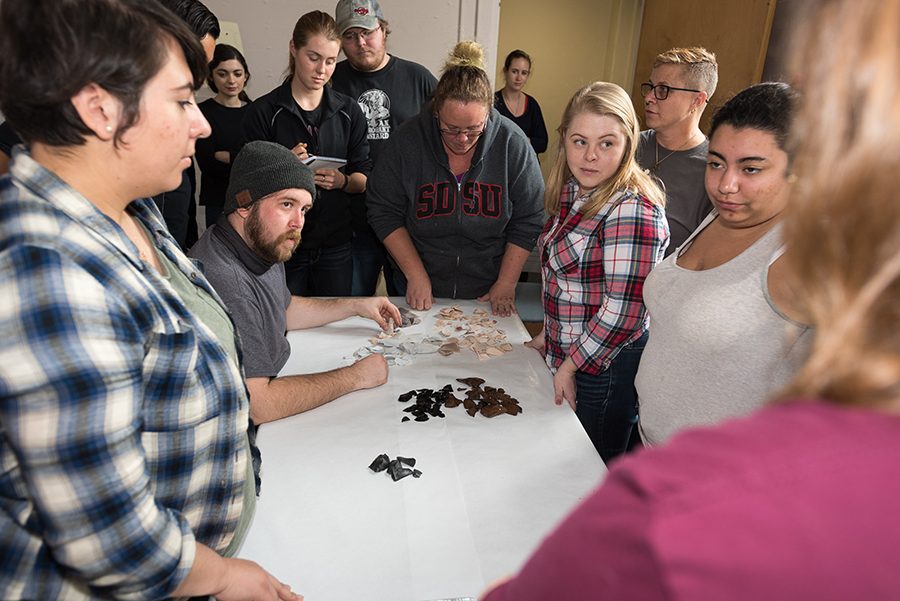The Association of Anthropology Students held a workshop on Feb. 10 that gave students a first-hand look at primitive tool use.
The experimental archeology workshop was entirely funded by the Student Success Fee.
The mandatory student success fee was introduced in Fall 2014 to expand academic related programs.
Ninety percent of the revenue generated from the fee goes toward hiring new faculty, with the remaining 10 percent earmarked for academically related programs or students’ projects, according to the SDSU Business and Financial Affairs website.
The workshop aimed to give students the experience of a prehistoric person, anthropology professor Isaac Ullah said.
“The main technology they had back then were stone tools,” he said. “Most of us in the modern world have no idea what a stone tool is, how to make one (or) how to use one.”
The workshop gave students the opportunity to make stone tools and create “flakes” by striking rocks.
“The flake is like a knife blade,” Ullah said. “Sometimes if you have obsidian it can be really sharp like razor sharp.”
After creating stone tools and a system to categorize them, the students selected the best flakes to butcher a goat, purchased by Ullah at a butcher shop.
“The experience will not only give us a more visceral understanding of what it was like to be a pre-historic person, but we’re actually going to do it scientifically,” Ullah said.
The aim of the experiment was to give students a better understanding of different techniques prehistoric people may have used to butcher their animals after hunting them, Ullah said.
“We’re going to study the wear patterns on the stone tools and the cut marks on the bones, and see how they’re different from modern day cut marks from the butcher shop,” he said.
The workshop also gave students important fieldwork experience, AAS Vice President Hilary Moore said.
“I went to almost every single anthropology professor and I was like ‘what would be beneficial for us to learn?’ because for students, we’re not so sure what would be good on a resume or on the field,” she said.
AAS treasurer Natalia Galeana said it was important to understand how tools were used in prehistoric times.
“We always read about them in textbooks, and we don’t really see how they’re used and we don’t see how the damage is seen on the tool,” she said.
Anthropology junior and member of the association Leland Searl said the workshop would hopefully give students a better insight into the past and present day.
“It’s hopefully to get (us) some kind of idea how ancient people thought, how we thought in our past (and) to get a better idea of how we act now, how we changed, how we have developed as societies and as humans,” he said.
The total cost of the day’s event was $415, Moore said.
The group submitted six student success fee grant proposals, and was approved for three.
In addition to the experimental archaeology workshop, the group received roughly $8,500 to hold four field anthropology workshops, as well as $22,660 to hold an archaeology field school over spring break.
Moore said receiving the grants was amazing, especially for the humanities.
“College of Arts and Letters brings in so many students and for the student success fee there’s about i think this year about 900,000,” she said. “CAL brings in about half of that money, so we were really disappointed last year when we didn’t really put forth a lot of ideas.”
For the 2016-2017 school year, SDSU awarded approximately $950,000 to student groups through the student success fee.
Projects ranged from guest speaker events to building an autonomous underwater vehicle.
The SDSU Rocket project received the greatest amount of funding, and was rewarded $62,000 to design, test and launch three different rockets during the 2016-2017 school year.













